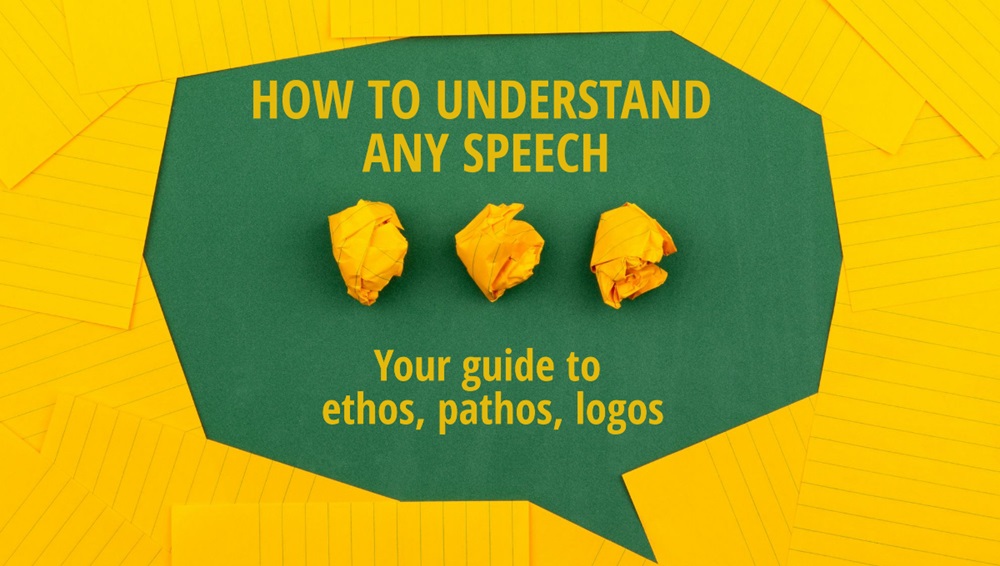Okay, confession time. The first time I heard the word ethos, I thought it was a fancy shampoo brand. “Strengthens your argument and your split ends!” But jokes aside, ethos isn’t something you wash your hair with—unless your hair’s made of rhetoric.
So what is it?
If you’re a literature student and you’ve made it this far into your academic life without wrapping your head around the ethos definition literature folks keep tossing around… you’re not alone. I once tried to fake my way through an essay by just talking about “emotional vibes.” My professor? Not impressed.
But let’s break it all down in a way that actually sticks.
What Even Is Ethos Anyway?
Alright, imagine you’re at a family gathering. Your cousin Dave starts ranting about politics—again. You roll your eyes. But then your grandpa chimes in with this calm, weathered wisdom, and suddenly… everyone listens. Why?
That’s ethos.
The Quickest Ethos Definition Literature Ever Needed
Ethos is credibility. It’s the reason you trust Grandpa over Dave. In literature and rhetoric, it’s about how a speaker or writer builds trust with their audience.
Still here? Good. Let’s dig deeper.
The Famous Trio: Ethos, Pathos, Logos
Yeah yeah, you’ve heard this before. But let’s do it in normal person terms.
- Ethos = “You should trust me”
- Pathos = “Feel what I’m feeling”
- Logos = “Here’s the logic, nerd”
How They Work Together
If a speaker nails all three, it’s like the rhetorical version of a perfect meal: trustworthy chef (ethos), tasty seasoning (pathos), and an actual recipe that makes sense (logos). Miss one and suddenly you’re eating raw chicken with sprinkles.
Now, remember, we’re focusing on ethos definition literature nerds like us deal with every day. But you can’t really get it without seeing how it hangs out with its two pals.
Ethos in the Wild: Real-World and Literary Examples
I still remember the first time I read To Kill a Mockingbird. Atticus Finch? Ethos king. The way he speaks in court, calmly and with moral clarity—you don’t just hear him. You believe him.
Other Literary Ethos Powerhouses
- Jane Eyre – Her moral compass is so strong, it could guide ships.
- Othello – At first, people trust him blindly. That’s ethos… and then betrayal hits hard.
- Sherlock Holmes – That cocky vibe? It works because he backs it up with results.
Everyday Examples Too
- A doctor on a commercial saying, “I recommend this product.” Boom. Instant ethos.
- Your mom saying, “Because I said so.” Ethos? Maybe. Debateable.
Ethos definition literature discussions usually ignore the vibe, but vibe matters! Like when a teacher walks in wearing elbow patches? You know they know Shakespeare.
Why Should You Even Care About Ethos?
I get it. You’re knee-deep in essays and existential dread. Why should ethos definition literature become one of your “know-by-heart” concepts?
Because it shows up everywhere. In every argument, every persuasive paragraph, every sappy monologue that makes your eyes water.
When You Write, Ethos Is Your Secret Weapon
Let’s say you’re writing an essay on climate change. If you start by quoting some random blogger with a lizard avatar, you lose ethos. Fast.
But if you build your credibility—cite solid sources, sound informed, maybe throw in your own relevant experience—suddenly, your reader is nodding along.
Trust me. I’ve tried both ways. Only one got a passing grade.
3 Ways Authors Build Ethos Without You Noticing
Ethos isn’t just about shouting, “Hey! I’m trustworthy!”
Sometimes it sneaks in, like a cat in the night. Or that awkward memory of mispronouncing “colonialism” in front of your whole class. (Yes, that happened. I said “colon-oil-ism.”)
1. Voice and Tone
Authors who sound confident without being jerks tend to radiate ethos.
Think: calm, assured, a little witty—like someone you’d share a bench with during a fire drill.
2. Experience or Background
When a character has gone through stuff, you just trust them more. Even if they’re a mess.
Remember The Bell Jar? Esther Greenwood’s mental health struggles make her narration painfully raw—but that’s also why we listen.
3. Moral High Ground (Usually)
Characters who stick to their principles—even when it sucks for them—tend to gain ethos points. This is why Atticus Finch is forever in English Lit Hall of Fame.
So yeah, ethos definition literature students toss around might sound textbook-y. But it’s human. It’s deeply human.
The Good, the Bad, and the Straight-Up Cringey: Ethos in Speeches
Let’s take a tiny detour.
The Good
MLK’s “I Have a Dream.” From the first line, you feel his authority. Not because he brags—but because he’s lived it.
The Bad
That time a rich CEO tried to relate to minimum wage workers by saying, “I used to be broke too—in college, I had a used Lexus.” Bro. No.
The Cringey
Okay, so one time in high school, I tried to run for student council president. My speech started with, “I’m just like you. I once got a B in math.” The crowd? Silent.
That’s the thing with ethos definition literature warns you about—it’s earned, not announced.
A Bit of History: Aristotle’s Take
Old man Aristotle (yes, toga guy) is the reason we even have the word “ethos” in the first place. He laid out the original ethos-pathos-logos triangle.
He believed that to persuade someone, you had to be believable. Not just say smart stuff. Be a person worth listening to.
Honestly, that’s timeless. It’s like your friend who gives great advice… not because they’re perfect, but because they’re real.
Fun fact? Aristotle also thought spontaneous speeches were better than written ones. Wrote this paragraph by hand. Then spilled coffee on it. Classic.
How Ethos Works in Your Lit Essays (Yes, Yours)
If you’re writing a paper and don’t show ethos in your tone, your argument sounds like a soggy sandwich. Kinda there, but no crunch.
Here’s What to Do:
- Sound confident but not bossy
- Mention your sources (duh)
- Don’t over-exaggerate like “This proves once and for all…” (No it doesn’t, Karen.)
Use the ethos definition literature guides love: make your audience believe you.
Oh, and don’t quote TikTok as your source. Please. Just… don’t.
Ethos in Modern Media: Netflix, TikTok, YouTube Rants
We live in the era of influencers. Ethos is practically their currency.
- A YouTuber says, “I’ve been reviewing games for 10 years.” You believe them.
- Someone else says, “This is just my opinion, but…” And you already start to zone out.
Who Has Good Ethos Online?
- LegalEagle (that law dude on YouTube) – because he actually is a lawyer.
- BookTok creators who cry over books – because we feel that sincerity.
- Podcasters who admit their flaws – oddly, that boosts ethos big time.
See? The ethos definition literature talks about doesn’t stay locked in a dusty textbook. It lives on your FYP.
Wait… Can You Fake Ethos?
Yep. All the time.
Fake ethos is basically putting on glasses and pretending you read Tolstoy. Or worse—quoting authors you haven’t actually read. (Been there, done that, bombed the oral exam.)
That’s why teachers can smell it. You can’t fake credibility with fluff. Real ethos feels solid. Fake ethos? Flimsy as a vending machine sandwich.
Quick Cheat Sheet: Spotting Ethos Like a Pro
Wanna flex your ethos-spotting skills? Look for these signs:
- Is the speaker someone you’d trust with your dog?
- Do they sound like they know what they’re talking about?
- Do they actually back up what they say?
- Would you quote them in a paper without feeling dumb?
If it’s all yes—boom, ethos.
And if you’re trying to use it in your own writing? Think about how you’d talk to someone who doesn’t know you yet. You’re not trying to win a debate—you’re trying to earn trust.
Final Thoughts from a Lit Nerd Who Got a C+ Once
If you’re still wondering why ethos definition literature is such a big deal, here’s why:
It’s not just about sounding smart. It’s about sounding real. People trust people. Not robots. (Which, let’s be honest, makes this article kinda ironic.)
I mean, I still mess up sometimes. I once called Thoreau “that pond guy” on a Zoom call. But you know what? I believed in my essay. And that belief—that tone, that vibe—that’s ethos.
Ethos isn’t just a definition. It’s a feeling. And if you can make your reader feel like you’re worth listening to?
You’ve already won.








